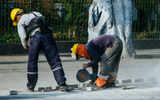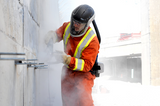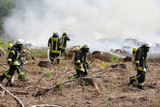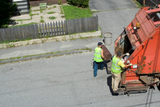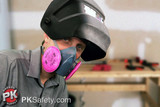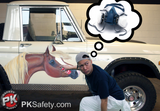Blog
Silica Dust Rules and Regulations
Working in manufacturing or construction industries means being exposed to a number of respiratory hazards, including silica dust. Respirable crystalline silica is commonly found in these job sites as a natural consequence of the activities that are usually done there: cutting, grinding, drilling, brushing stone, concrete, brick, mortar, drywall, and other construction materials can all create silica dust.
Silica dust is a direct and serious threat to the respiratory health and safety o
…
Mar 22nd 2022
Silica Dust Mask: What Type of Respirator Should I Use for Silica?
We make specific recommendations below, but first a little background. Working in the manufacturing or construction industries often means being exposed to what’s known as silica dust, or respirable crystalline silica, which is created by cutting, grinding, drilling, or crushing stone, rock, concrete, brick, mortar, and other construction materials. Silica dust poses a direct and serious threat to the health of anyone working near this dust. A study by Koo et al. (2000) highlighted the significa
…
Oct 17th 2019
Respirator for Smoke: What Is the Best Mask for Wildfire Smoke?
As the AB1124 California Bill goes into effect, we’re taking a moment to talk about what employers should look for in a respirator or face mask. The bill requires employers to provide N95 rated respirators (at a minimum) to all their employees working outdoors during a wildfire. Wildfire smoke can irritate a person’s eyes, nose, throat, and lungs, and it can cause cancer, heart disease and even lead to death. N95 respirators protect individuals from some of the particulates present in wildfir
…
Jul 10th 2019
Masks that Block Smell: What is the Best Respirator For Terrible Smells?
A city worker recently wrote to find out which
respirator would filter out the strong smells at the landfills best. He writes, "I work for sanitation in NYC. Sometimes I have to bring the garbage to landfills and dump it out the back of my truck. I am stepping in waste - horrible smelling - especially in the summer when the sun hits it. Rotten eggs, food, diapers, blood, cleaning chemicals, and sometimes dead animal bodies. What should I use that would mask out these smells? Should I consi
…
Sep 25th 2013
Welding Respirator: How Can You Protect Yourself From Welding Fumes?
Welders understand that the fumes and gases produced from their work can lead to serious illness. The danger and amount of exposure to the welders depend on the type of work being done, the rod, filler metals, base metals, coatings, contaminants, as well as the amount of ventilation and respiration protection.
We simply don't know everything there is to know about protecting workers from welding fumes. However, there are some common precautions that can be taken to protect workers from
…
Sep 12th 2012
Best Automotive Paint Respirator: Which Spray Paint Mask Filters are Best For Automotive Work and Spray Painting?
Folks often ask us which respirator to use for spray painting and automotive body work. There are some good options out there but the type of filter and respirator mask will depend largely on the kind of work you do, and how often you are doing it. The only safe solution for urethane paint is pulling clean air from a remote spot and that requires an airline respirator system like the
Allegro 9200-01 System. But let's talk about basics first.
For instance, if you are sanding Bondo, gr
…
May 9th 2012
Lead Fume Respirator: Respirator Protection from Lead and Paint Fumes
The variety of jobs and tasks our customers set out to do continually amazes me. Here is a query from a recent customer about his task:
In an upcoming job I will be melting lead and spraying acrylic and lacquer based paints. What mask and filters do you recommend to protect me from the fumes associated with these tasks? How does sizing on the masks work?
For the lead fumes I suggest using a P100 (HEPA) filter such as the
3M 2091 Particulate Filter or the 3M 7093 P100 HEPA filte
…
Jun 10th 2011


